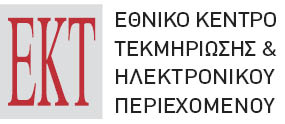Στόχοι της παρούσας διατριβής είναι οι εξής: Πρώτο, να μελετηθεί και να αξιολογηθεί με επιστημονικούς όρους το σύνολο της μεταφραστικής εργασίας του Θεοτόκη, κάτι που ως τώρα έχει γίνει μόνο σποραδικά και μόνο για μεμονωμένα μεταφράσματα. Δεύτερο, να τοποθετηθεί η μεταφραστική εργασία του Θεοτόκη στο ιστορικό της πλαίσιο και να αναδειχθεί η συνάφειά της με το μεταφραστικό πρόγραμμα του σολωμικού κύκλου και των συνεχιστών του. Τρίτο, να γίνει διαχρονική μελέτη σύνολου του έργου του Θεοτόκη, μεταφραστικού και πρωτότυπου, ώστε να αναδειχθούν οι επιρροές του από όλα τα λογοτεχνικά και ιδεολογικά ρεύματα. Τέταρτο, να μελετηθούν συστηματικά οι διακειμενικές σχέσεις μεταξύ πρωτότυπου και μεταφραστικού έργου του Θεοτόκη, με σκοπό να αναδειχθεί η σημαντική συμβολή της λογοτεχνικής μετάφρασης στη δημιουργία πρωτότυπης λογοτεχνίας. Όλα τα παραπάνω έχουν ως τελικό σκοπό τη σύνθεση μιας ολοκληρωμένης εικόνας της συγγραφικής ταυτότητας του Θεοτόκη, θεωρώντας ως αναπόσπαστο κομμάτι της την ιδιότητα του μεταφραστή.
This dissertation examines the literary translations of Konstantin Theotokis (1872-1923), a Corfiot writer, poet and translator. Theotokis translated from many different languages as well as a wide range of genres. For instance, his work includes excerpts from the Bhagavat Ghita and the Ramayana, plays by Kalidasha, Shakespeare and Aristophanes, poetry by Pindar, Horatius, Catullus, Goethe, Schiller and Heine, short texts by Dostoyevsky, Tolstoy, Turgenev and Gorki, ancient Greek and Latin philosophy (Plato, Vergil, Lucretius), Gustav Flaubert’s Madame Bovary. Theotokis also produced ample original literary work, much of which holds a significant place in modern Greek literature. The fact that his translations comprise more than half of the total bulk of his writings, and cover the whole period of his life and work as an author, indicates that he viewed translation as a process parallel with literary writing and even vital to it. Although he is traditionally considered as a naturalist, his work also bears influences from romanticism, Indian literature and philosophy, ancient Greek and Latin poets and so on, so it is evident that he has drawn inspiration from the texts he translated. In my thesis, apart from examining the choices Theotokis made in his translations (in terms of language, metre, style etc.), I also demonstrate how they formed and transformed his literary identity and how they served as a means of introducing certain themes and ideological elements into modern Greek literature. In addition, the thesis discusses Theotokis’ affiliation to the Heptanesian School (a group of scholars and authors based mainly in Corfu) and his ideological and literary kinship with Dionysios Solomos, the national poet of Greece. Finally, an important aspect of this dissertation is that it explores the use of the demotic Greek by Theotokis, his attitude towards the Language Issue and his linguistic theory.
 Εθνικό Κέντρο Τεκμηρίωσης και Ηλεκτρονικού Περιεχομένου (ΕΚΤ)
Εθνικό Κέντρο Τεκμηρίωσης και Ηλεκτρονικού Περιεχομένου (ΕΚΤ)

